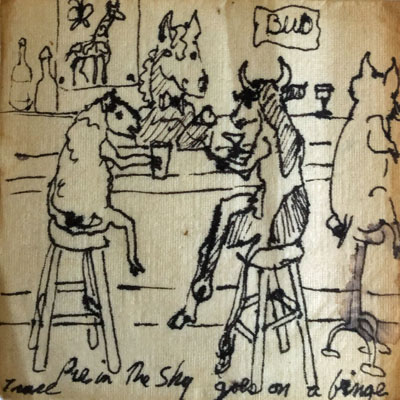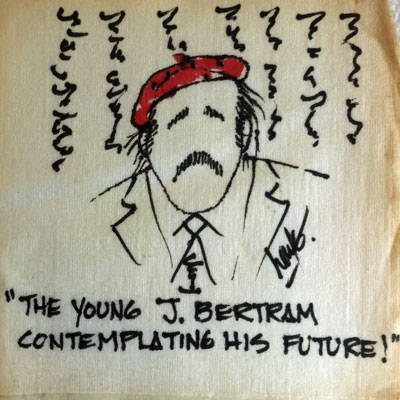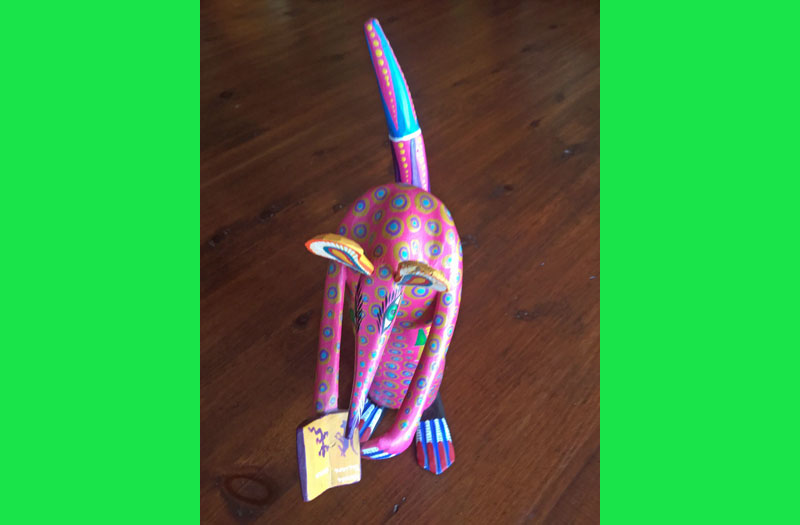[click on blue links to read the article and for further information]
Pollyannish: A person regarded as being foolishly or blindly optimistic. [after the heroine of the novel Pollyanna by Eleanor Hodgman Porter (1868-1920), American writer
“Never short America” over the long-term … Gary Evans, Global Macro Monitor
At the risk of being saddled with the pollyannish monicker, I offer on Christmas Day a few optimistic reads. There is some evidence that optimism and good health are positively correlated. Thus, I raise my glass in a toast to your good health and send you on your way.

Sea Gull Cellar Bar Napkin Art, artist unknown
Between the optimist and the pessimist, the difference is droll. The optimist sees the doughnut; the pessimist the hole! … McLandburgh Wilson
Cynic: someone who knows the price of everything and the value of nothing … Oscar Wilde

Sea Gull Cellar Bar Napkin Art, artist unknown
The 10 Most Critical Problems in the World According to Millennials
Despite the dire state of the world today — and the stereotype that millennials’ are selfish and apathetic — the generation aged 18 to 35 cares deeply about global issues, and they’re determined to tackle them.
In fact, 70% of millennials see plentiful opportunities for themselves and their peers, and 50% believe they can significantly contribute to decision making in their home country.
These insights come from the World Economic Forum’s (WEF) annual Global Shapers survey, released this week, which surveyed more than 26,000 millennials from 181 countries to gauge the priorities, concerns, and attitudes of millennials around the globe.
It may have seemed like the world fell apart in 2016. Steven Pinker is here to tell you it didn’t.
In his 2011 book The Better Angels of our Nature, Pinker meticulously documented a steady decline in violence over the past several centuries, which, he writes, “may be the most significant and least appreciated development in the history of our species.”
A history of global living conditions in 5 charts
There are big problems that remain. None of the above should give us reason to become complacent. On the contrary, it shows us that a lot of work still needs to be done – accomplishing the fastest reduction of poverty is a tremendous achievement, but the fact that 1 out of 10 lives in extreme poverty today is unacceptable. We also must not accept the restrictions of our liberty that remain and that are put in place. And it is also clear that humanity’s impact on the environment is at a level that is not sustainable and is endangering the biosphere and climate on which we depend. We urgently need to reduce our impact.
It is far from certain that we will make progress against these problems – there is no iron law that would ensure that the world continues this trend of improving living conditions. But what is clear from the long-term perspective is that the last 200 years brought us to a better position than ever before to solve these problems. Solving problems – big problems – is always a collaborative undertaking. And the group of people that is able to work together today is a much, much stronger group than there ever was on this planet. We have just seen the change over time; the world today is healthier, richer, and better educated.
Physicist David Bohm on Creativity
No really creative transformation can possibly be effected by human beings, either in nature or in society, unless they are in the creative state of mind that is generally sensitive to the differences that always exist between the observed fact and any preconceived ideas, however noble, beautiful, and magnificent they may seem to be.

Sea Gull Cellar Bar Napkin Art, Jack Haye artist

